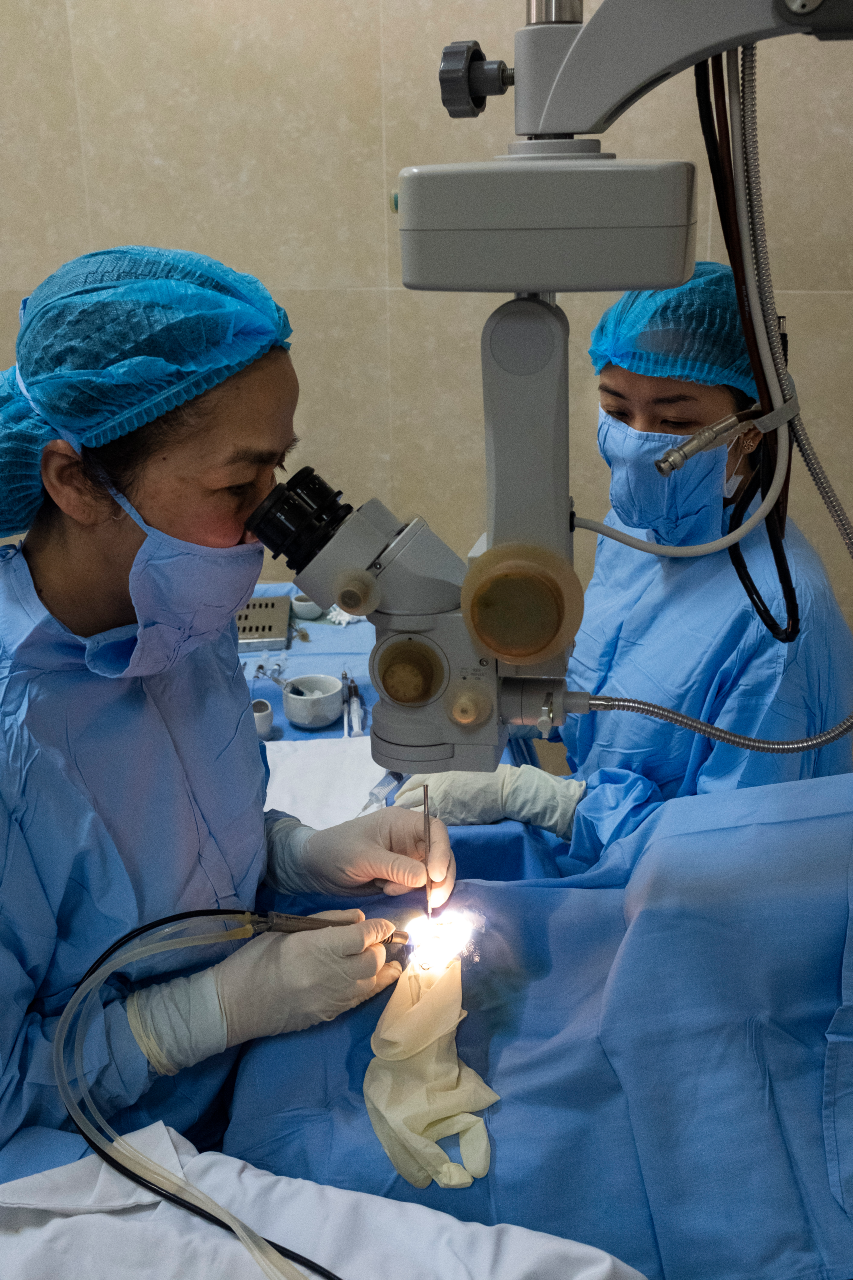Health technology assessment
Health technology assessment (HTA) refers to the the systematic evaluation of properties, effects, and/or impacts of health technology. It is a multidisciplinary process to evaluate the social, economic, organizational and ethical issues of a health intervention or health technology. The main purpose of conducting an assessment is to inform a policy decision making.
Considering the definition of health technology, as the application of organized knowledge and skills in the form of medicines, medical devices, vaccines, procedures and systems developed to solve a health problem and improve quality of life.
Resolutions

Ninh Binh City - 14 March, 2018: doctors performing an eye operation
Publications
HTA history in WHO
Health Technology Assessment was first quoted 30 years ago in WHO and two regional offices (EURO and AMRO), considering HTA a way to strengthen evidence based selection and rational use of health technologies and increase efficiency when introducing and using these technologies in health care. Recently in 2013, WHO publications and Resolutions indicate that HTA is a tool to further advance the implementation of Universal Health Coverage (UHC) in terms of deciding who should be getting which intervention and at what cost. These concepts are linked to people centered care, essential packages, resource allocation, and most important, quality of health services delivery to get more cost-effective healthcare.
HTA is not a new concept, nor is its relation to WHO. Indeed, a key person to initiate the development of HTA globally is Professor David Banta who worked in the Office of Technology Assessment in the USA and was the first to establish methods of HTA. Later on (1983 to 1985), he was Deputy Director in the Pan-American Health Organization (PAHO) (Health Technology Assessment International, 2014), and he was one of the founders of International Society for Technology Assessment in Health care (ISTAHC) and Health Technology Assessment International (HTAi).
It is noted that PAHO initiated HTA concepts and publications in 1991 led by Jorge Pena and in 2000 by Daniel Lopez Acuna and Alberto Infante, who had supported the development of HTA concepts and agencies in the region. These agencies have now been integrated in REDETSA, the PAHO network on HTA national agencies. In EURO, the European Observatory on Health Systems and Policies along with Eunethta developed a publication on HTA and health policymaking in Europe, coordinated by Finn Boerlum Kristensen.
WHO documents and meetings on HTA
Over time, numerous meetings have taken place, and documents have been published in WHO in reference to HTA:
In 1984, the WHO European Office stated that “prior to 1990 all the Member States should have established a formal mechanism to systematically assess the appropriate use of health technologies and verify that they respond to the national health programs and the country’s economic means” (EUROMS, 1984).
AMRO/ PAHO, was the second WHO region to publish information on HTA and supported workshops that led to the constitution of HTA agencies since 1989. (Panerai RB, Mohr JP, 1989).
The WHO HQ offices have organized two important meetings. In 1993, the Second meeting of WHO Regional Advisers on Technology Development, Assessment, and Transfer took place in Alexandria, Egypt. On 1 June 1994, a working group met in Geneva, WHO HQ, named “Promoting the Use of Health Technology Assessment to Improve Health Care in Developing Countries”
In 1997, Dr. Daniel Lopez Acuna, Director of Health Systems and Services Development, organized a working group and two meetings on the methodology and practical applications of HTA in Mexico and in Chile and held a panel at the XII Annual Meeting of the ISTAHC.
In 1998, 10 years after the first PAHO Publication, a book entitled “Developing Health technology assessment in Latin America and the Caribbean”, coordinated by Dr. Alberto Infante (Panamerican Health Organization, 1998), triggered the expansion of the HTA concepts and methodology in the region of the Americas.
Both before and after the re-organization of ISTAHC and the establishment of the professional society HTAi in 2003, various WHO staff members had participated in conferences organized both by ISTAHC and in the last 10 years by HTAi.
Global Collaboration on Medical Devices
Collaboration is at the heart of all we do. Every day we connect nations, partners and experts so that we can go further, together. Our partners help support WHO’s scientific work and field programmes, contribute funding and resources, engage in our campaigns and programmes and join us in advocacy to bring policy and behaviour change for better health. Official collaborations with WHO are conducted in the following forms:

